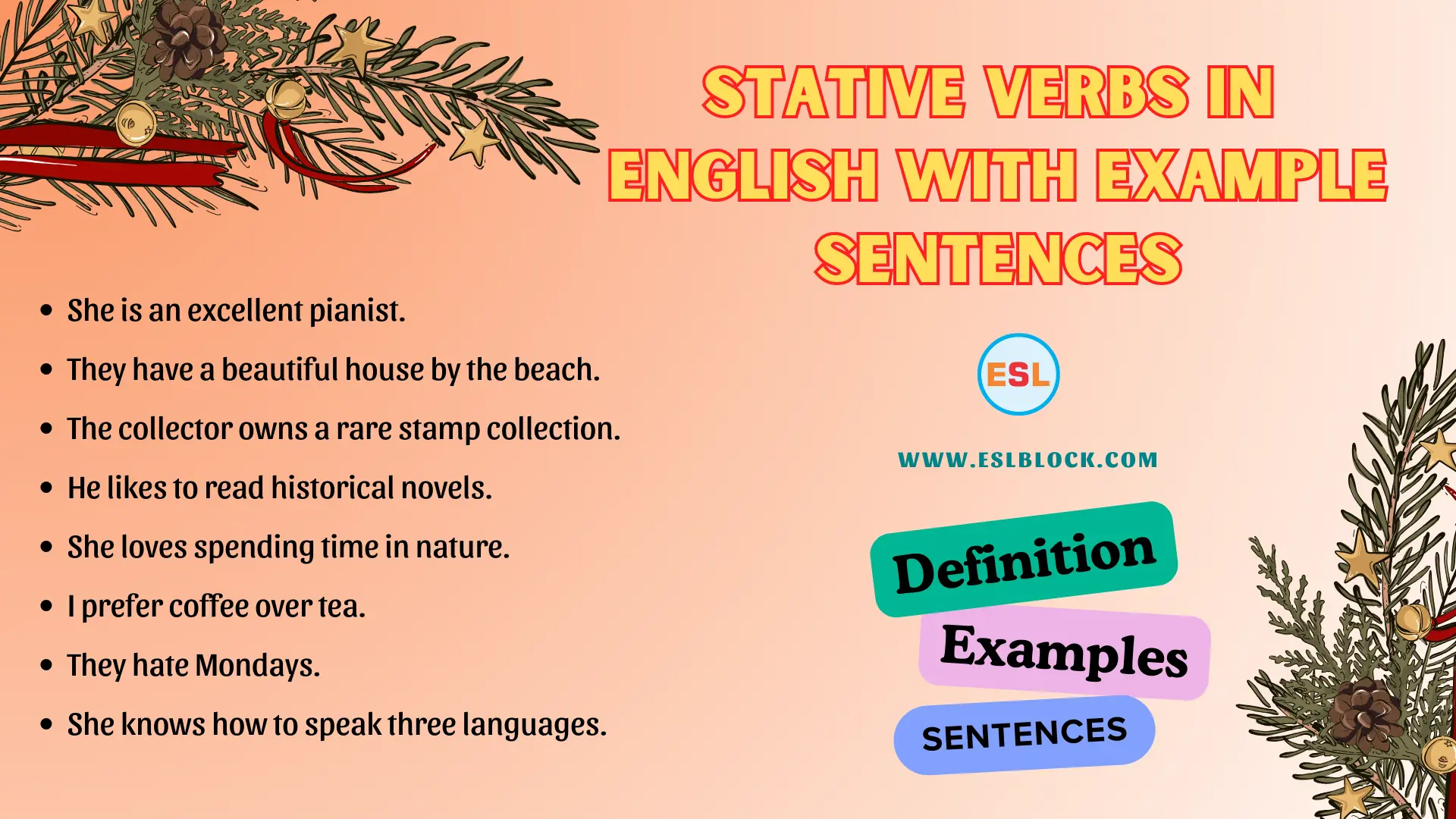Stative Verbs in English with Example Sentences

Embark on a linguistic journey as we unravel the intricacies of stative verbs, the silent observers in the symphony of English grammar!
Nestled within the framework of parts of speech, stative verbs play a unique and subtle role in shaping our expressions. Today, let’s delve into the definition, meaning, and importance of stative verbs, exploring their place in the rich tapestry of English grammar.
Stative verbs, often overlooked but ever-present, hold a distinctive position among parts of speech. ? Unlike dynamic verbs that denote action and change, stative verbs express states, conditions, or emotions. In this article, we’ll demystify the essence of stative verbs, uncovering their significance in conveying the static aspects of our language.
Also Check: Parts of Speech
What are Stative Verbs?
Stative verbs, also known as state verbs, are linguistic components that express a state, condition, or a continuous state of being rather than an action. Unlike dynamic verbs that convey movement or change, stative verbs provide insight into the unchanging aspects of our existence.
For example, in the sentence “She owns a vintage car,” the stative verb “owns” expresses possession, a state that remains constant over time. This characteristic distinguishes stative verbs, making them vital for articulating the enduring and unchanging facets of our lives.
Examples of Stative Verbs
Explore the realm of stative verbs through this list:
- Be
- Have (possession)
- Own
- Like
- Love
- Prefer
- Hate
- Know
- Understand
- Believe
- Remember
- Forget
- Belong
- Possess
- Consist
- Seem
- Appear
- Smell
- Taste
- Feel
Example Sentences using Stative Verbs
- She is an excellent pianist.
- They have a beautiful house by the beach.
- The collector owns a rare stamp collection.
- He likes to read historical novels.
- She loves spending time in nature.
- I prefer coffee over tea.
- They hate Mondays.
- She knows how to speak three languages.
- He easily understands complex mathematical concepts.
- I believe in the power of positive thinking.
- She vividly remembers her childhood adventures.
- I always forget where I put my keys.
- The antique vase belongs to my grandmother.
- He proudly possesses a rare coin collection.
- The novel consists of three main parts.
- The solution seems quite simple.
- The illusionist made the rabbit appear out of thin air.
- The flowers in the garden smell delightful.
- The pasta tastes exquisite with the homemade sauce.
- She feels content with her life.
Conclusion
In the mosaic of English grammar, stative verbs emerge as the steady pillars, supporting the expression of unchanging states and conditions. ⚖️ Their role in conveying feelings, possession, and enduring characteristics is crucial for a nuanced understanding of language.
As we navigate the intricate dance of parts of speech, let’s recognize the importance of stative verbs in adding depth and dimension to our expressions. In the grand symphony of words, stative verbs stand as the anchors, grounding our language in the realms of constancy and emotion.






